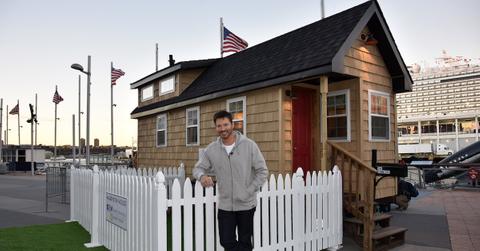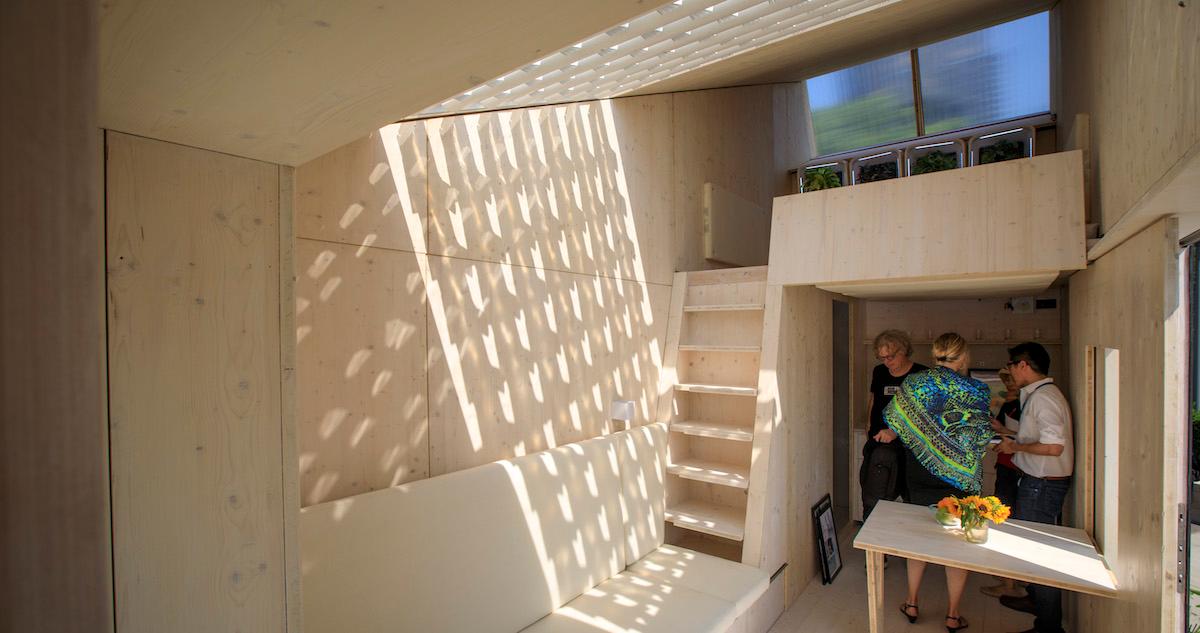Tiny Homes Aren't Legal in Every State — Here's Why
Published April 26 2021, 4:50 p.m. ET

Although most tiny homes contain less than 400 square feet of living space, many are finding themselves craving that simpler, minimalist lifestyle. Tiny homes only have a few of the usual complications found in modern homeownership, but unfortunately, not every U.S. state is as welcoming of this sustainable lifestyle. So before you uproot and make the change, consider which states allow tiny homes, and which do not.

Which states allow tiny homes?
Different cities, towns, villages, and municipalities will likely have different rules about tiny houses. According to the Tiny House Society, the laws that pertain to tiny houses vary state by state and also county by county. In some places, the sustainability aspect of tiny homes make them viewed as a desirable addition to the community. Other places might consider them at best, a fad — and at worst — a nuisance or safety hazard.
That being said, it doesn’t appear as though tiny houses are explicitly forbidden in any U.S. state. But, according to GoDownsize, only a handful of states are considered “tiny house friendly.” These states tend to be those of a more eco-friendly persuasion or those where zoning laws and permits might be a bit more flexible in terms of building dwellings of this size.
As an example, regulators in Colorado have waived Starway regulations, waived the minimum square footage required for a home, and reduced the size requirements for exit doors. States that are the most friendly to tiny homes are as follows:
- Arizona
- California
- Colorado
- Florida
- Georgia
- Idaho
- Indiana
- Kansas
- Maine
- Massachusetts
- Michigan
- Minnesota
- Nebraska
- Nevada
- New Hampshire
- New Mexico
- North Carolina
- Oregon
- Pennsylvania
- South Carolina
- South Dakota
- Tennessee
- Texas
- Utah
- Vermont
- Washington
Of all those listed, Business Insider states the 10 most popular states for tiny home living are Utah, New York, North Carolina, Arizona, Washington, Oregon, Texas, Colorado, Florida, and somewhat unsurprisingly, California.
What states don’t allow tiny homes?
GoDownsize indicates that the states least likely to be open to the idea of tiny homes are:
- Alabama
- Alaska
- Arkansas
- Connecticut
- Delaware
- Hawaii
- Illinois
- Iowa
- Kentucky
- Louisiana
- Maryland
- Mississippi
- Missouri
- Montana
- New Jersey
- New York
- North Dakota
- Ohio
- Oklahoma
- Rhode Island
- Virginia
- West Virginia
- Wisconsin
- Wyoming
Again, none of these states seem to openly forbid tiny homes from being built, but they certainly discourage them in certain ways. For example, certain states require tiny homes to have emergency exits or meet minimum ceiling heights. Zoning regulations also exist that might make it difficult to build a tiny house, even if you legally own the land you want to put it on.
However, tiny homes are such a novel concept that many states haven’t totally nailed down the specifics regarding their building, upkeep, sizing, required amenities, and beyond. Yet even if your municipality has no laws about building your tiny home, there may be some catches regarding you living there full time.
For example, even though tiny homes aren't "forbidden" in Washington state, certain counties might impose legal building restrictions on houses that are considered full-time dwellings. According to Tiny Home Society, King County has previously stated that tiny homes must be legally built on concrete foundations.
In truth, the best thing to do if you’re planning on building a tiny house is to contact your local municipality and ask what rules, regulations, permits, or ordinances you might need to follow in order to build and dwell in, your new house.